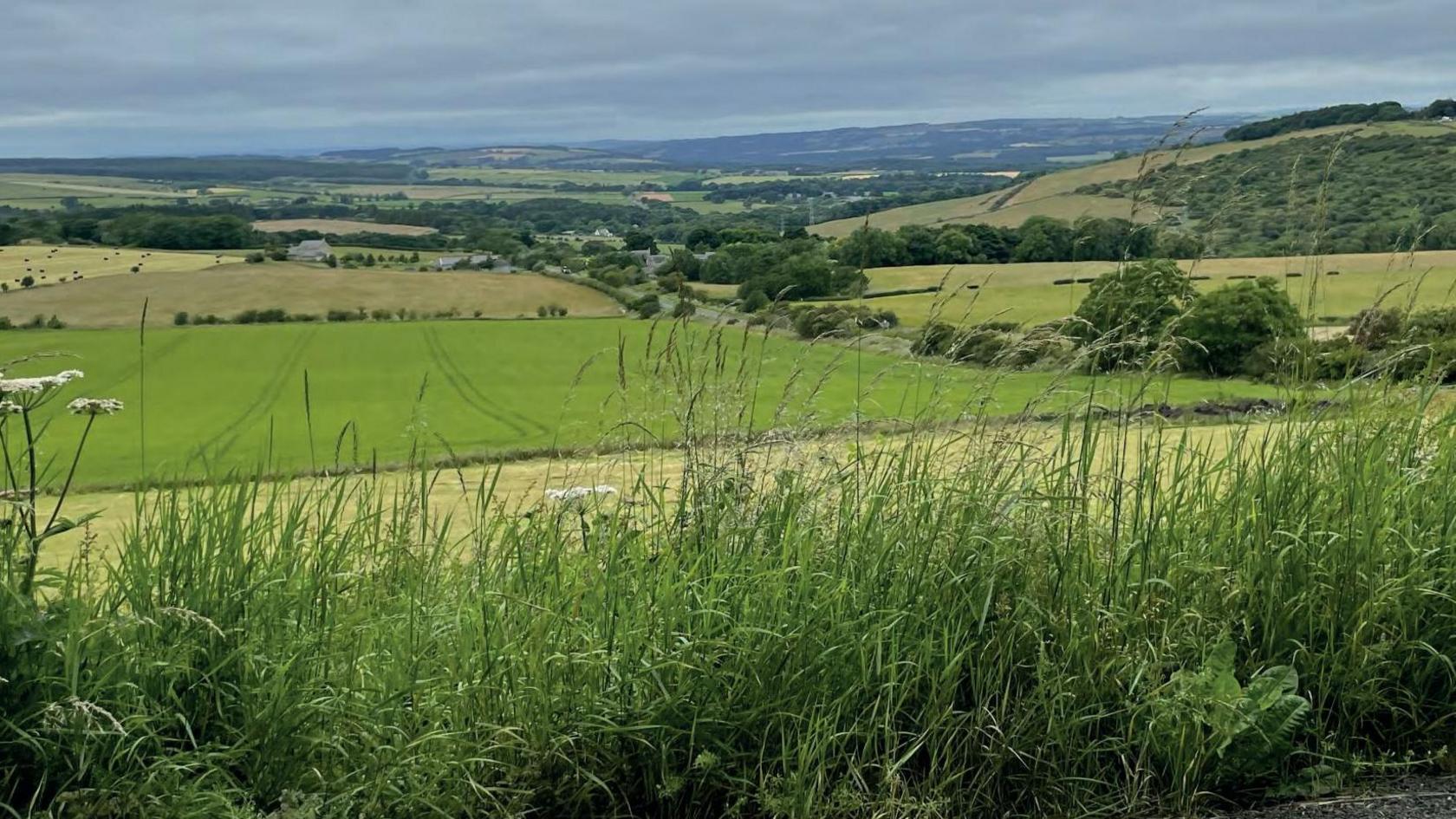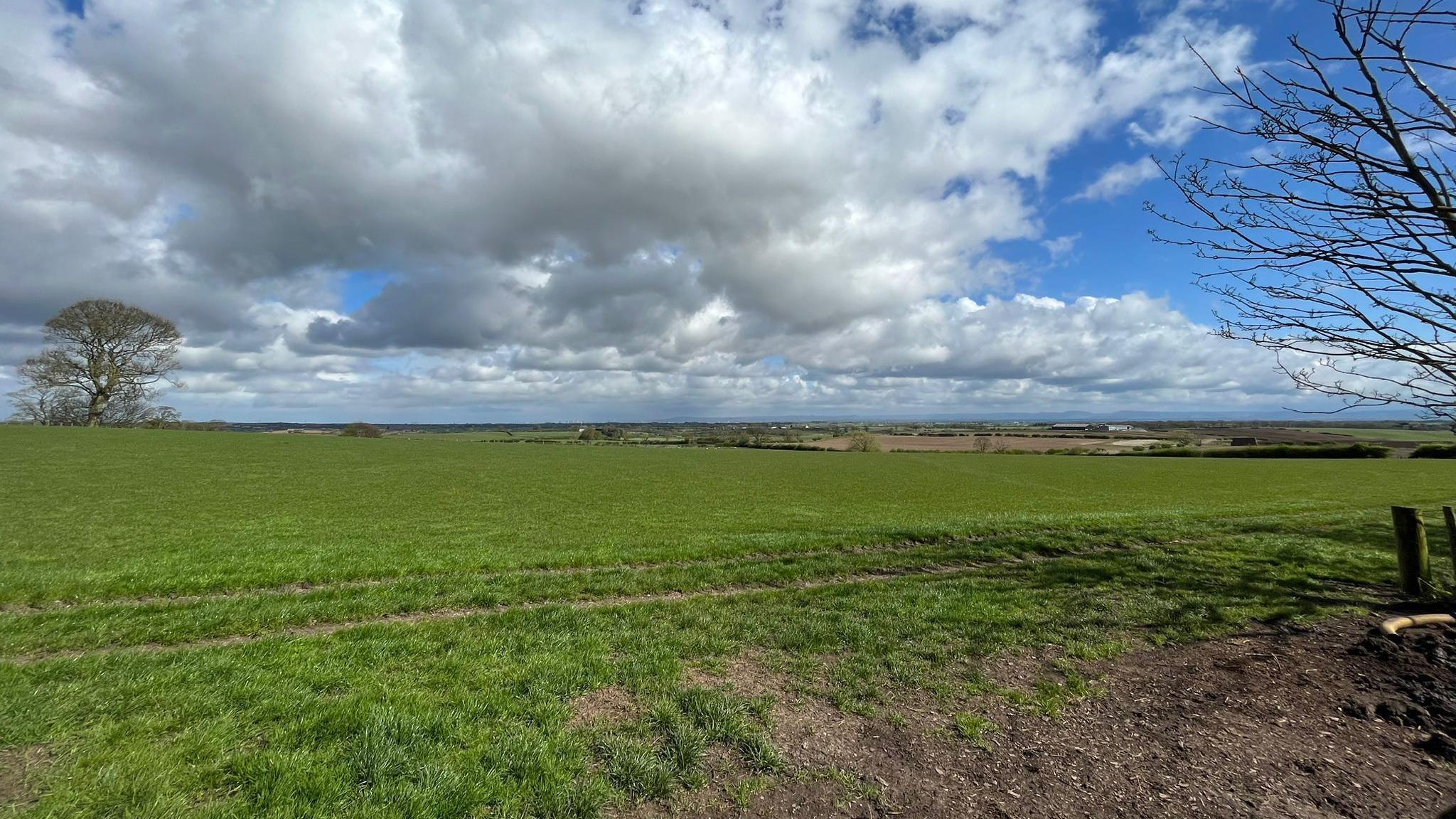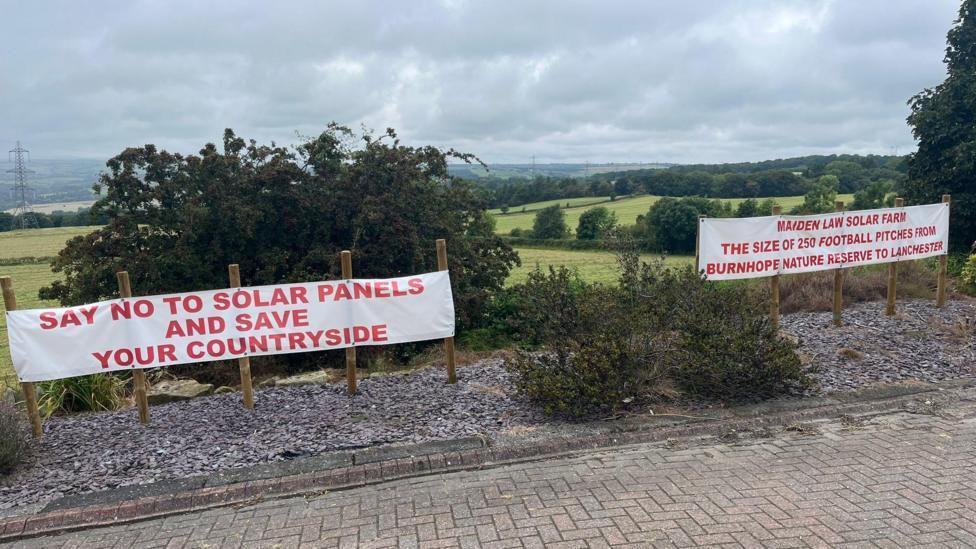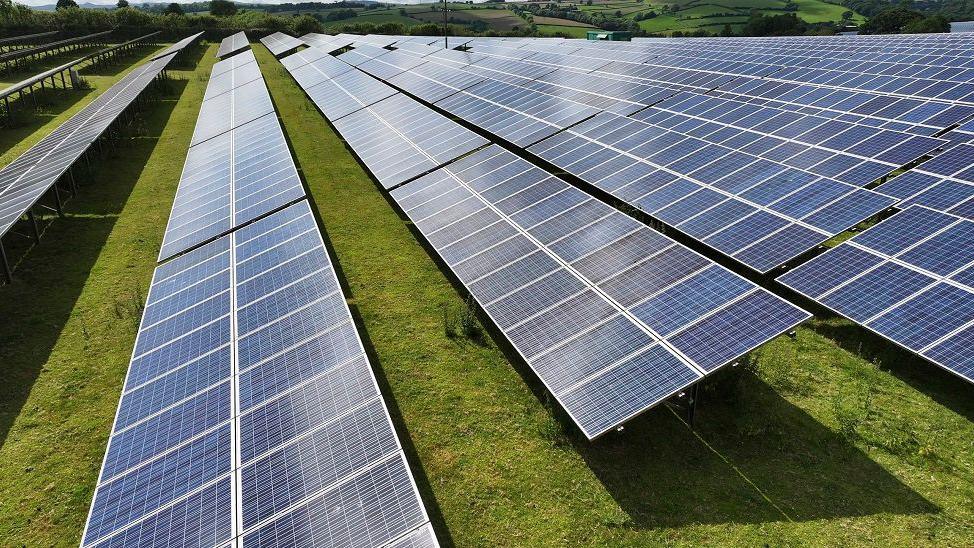Solar farm rejected over harm to 'rural paradise'

A solar farm development had been mooted for the land, near Whittonstall
- Published
A large-scale solar farm planned for a swathe of countryside has been refused, over concerns it would be a "wanton destruction of a rural paradise".
Renewable energy firm Exagen had put forward plans to build Highfield Energy Park on the site, near the village of Whittonstall, in Northumberland, but it was voted down by Northumberland County Council planning committee.
The firm had proposed erecting more than 90,000 solar panels across 271 acres (110 hectares), which they said would power 21,300 homes and save 27,900 tonnes of carbon dioxide (CO2) emissions per year.
The plans had previously been earmarked for approval, despite more than 140 public objections, but were overturned at a hearing.
Resident Adam Brown said the impact of the proposed solar farm, located between two wind farms, would be "overwhelming", adding there would not be sufficient access to the site for emergency services in the case of a fire.
He was joined by other objectors, including Kevin Rooney, who said there had been a "catastrophic" error in the site's drainage designs that risked causing flooding in the neighbouring woodland.
Exagen, which recently won approval for a major solar park across 30 fields between Greenside, Coalburns, and Chopwell, just over the border in rural Gateshead, said the solar farm was needed to meet the government's targets to significantly boost solar energy production by 2030.
'Missed opportunity'
Exagen's Andrew Mott the impact of the scheme on the green belt had been "kept to a minimum", and that the site was the "only viable location" in the area to connect to the electricity grid.
But Northumberland county councillor Colin Horncastle, said: "I think we all agree with renewable energy, but we cannot have renewable energy at any price.
"This is purely wanton destruction of a rural paradise."
The plans were spread across two sites totalling 271 acres, one of which would have hosted the solar farm and another for a substation - with the sites connected via an underground cable.
Mr Mott suggested the substation site, north of Lynn Burn, should be deemed 'grey belt' – a new term introduced under the Labour government to identify lower quality green belt land where building can be permitted.
But the public benefits of the solar farm would be sufficient to justify its development regardless, he added.
Planning committee chair, Trevor Thorne, was among the supporters of the project.
He said Northumberland was "missing a big opportunity" by denying the application, especially given the land was previously used for opencast mining rather than being an area of countryside that had hitherto been unspoilt.
Berwick East independent councillor Georgina Hill moved for the refusal of the plans, however, saying: "It [the landscape] is just stunning and it would be so wrong to approve this."
The committee voted by an 11 to four margin to reject the scheme, sparking applause from members of the public who had attended the Morpeth hearing to oppose the application.
Follow BBC North East on X, external, Facebook, external, Nextdoor and Instagram, external.
Get in touch
Do you have a story suggestion for BBC Tyne?
Related topics
Related stories
- Published24 July

- Published23 July

- Published1 August
